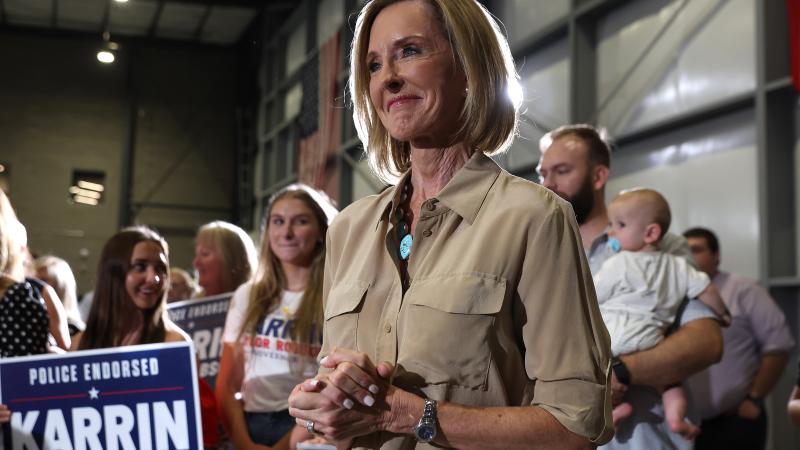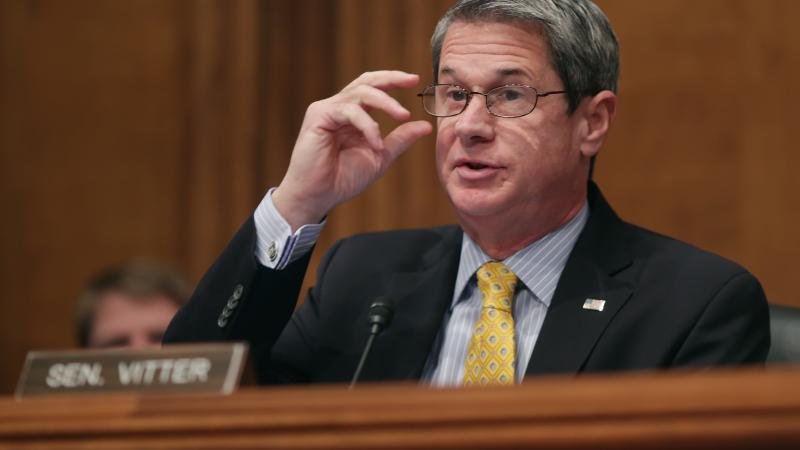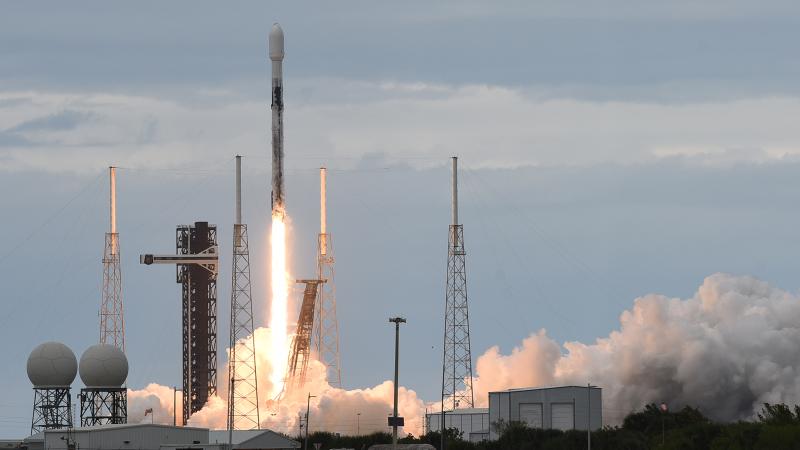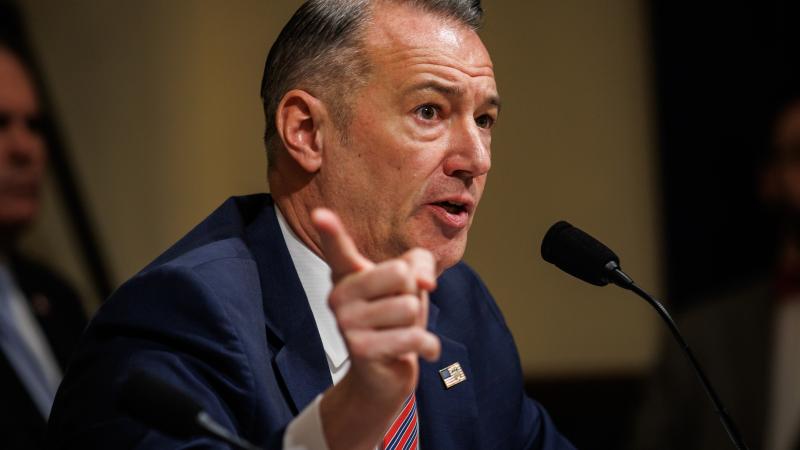Media shuns Trump's claims of election interference after embracing Clinton's in 2016
Babylon Bee: "Hillary Clinton: 'Trump Must Stop Fueling Dangerous Conspiracy Theories About Our Elections Being Unfair.'"
The Babylon Bee satirical news site last week had a story headlined: "Hillary Clinton: 'Trump Must Stop Fueling Dangerous Conspiracy Theories About Our Elections Being Unfair.'"
"After escaping from her underground padded room designed to look like the Oval Office, Hillary Clinton called on Trump to concede the race and stop fueling conspiracy theories about the election being unfair," the satirical website wrote. "The woman who has screamed about Russia stealing the election from her in 2016 lashed out at Trump for saying voter fraud stole the election from him in 2020."
While it was all just a joke, it's not far off from what's actually happening with President Trump, who has been claiming that voter fraud and other nefarious activities — with just as much proof so far as Clinton: none — altered the outcome of a presidential election.
The only difference: Social media, along with the mainstream media, are dismissing Trump's claims — even though they went all in for Clinton's equally unsubstantiated claims.
In a 24-hour period between mid-morning Thursday and Friday, Twitter censored six of Trump's posts. Trump's posts weren't visible. Instead, there was this note attached by Twitter: "Some or all of the content shared in this Tweet is disputed and might be misleading about an election or other civic process."
Site visitors could still click "view" on the right side to see the post.
In one post, Trump said: "All of the recent Biden claimed States will be legally challenged by us for Voter Fraud and State Election Fraud. Plenty of proof - just check out the Media. WE WILL WIN! America First!"
A couple of other posts from Trump included, "STOP THE COUNT!" and "ANY VOTE THAT CAME IN AFTER ELECTION DAY WILL NOT BE COUNTED!"
Twitter also provided another link alongside many of the president's tweets that takes visitors to a page titled "civic integrity policy."
"What is in violation of this policy?" the pages states. "This policy addresses 4 categories of misleading behavior and content:
In one category, "misleading information about outcomes," Twitter states: "We will label or remove false or misleading information intended to undermine public confidence in an election or other civic process. This includes but is not limited to:
- disputed claims that could undermine faith in the process itself, such as unverified information about election rigging, ballot tampering, vote tallying, or certification of election results; and
- misleading claims about the results or outcome of a civic process which calls for or could lead to interference with the implementation of the results of the process, e.g.
- claiming victory before election results have been certified, inciting unlawful conduct to prevent the procedural or practical implementation of election results (note that our violent threats policy may also be relevant for threats not covered by this policy).
Meanwhile, Facebook removed a group called "Stop the Steal" that was organizing protests at vote-counting facilities across the nation.
"The group was organized around the delegitimization of the election process, and we saw worrying calls for violence from some members of the group," a Facebook spokesperson said.
So it's worth noting that that's exactly what Clinton did after she lost badly in 2016, getting crushed in the Electoral College in a 304-227 vote.
In the days after that election, Clinton claimed that Russia had sought to infiltrate the U.S. election and had somehow affected the outcome by posting false stories on social media (Team Hillary never explained how those posts prompted millions of voters in Pennsylvania, Michigan and Wisconsin — all of which she lost — to vote for Trump). And she, like Trump, offered no proof of her allegations.
But Clinton's conspiracy theory grabbed hold in the mainstream media, which breathlessly reported that the election may have been "stolen."
That didn't work out well. Trump was investigated for 675 days by special counsel Robert Mueller and a team of 19 lawyers. Despite 2,800 subpoenas and 500 witness interviews, prosecutors found no evidence "that any U.S. person or Trump campaign official or associate” conspired or "knowingly coordinated" with Russians during the 2016 campaign.
Still, Trump was impeached and both the MSM and social media had no problem propagating the conspiracy theory that Clinton was robbed — for four straight years.
After last week's election, Clinton apparently wasn't open to the idea that some outside force altered the outcome of the election. "The voters have spoken, and they have chosen @JoeBiden and @KamalaHarris to be our next president and vice president," Clinton tweeted Saturday after The Associated Press, CNN, ABC, NBC and other news outlets called the race for Biden.
"It's a history-making ticket, a repudiation of Trump, and a new page for America. Thank you to everyone who helped make this happen. Onward, together," she wrote.
Last week's election was also reminiscent of 2000, when George W. Bush and Al Gore found themselves virtually tied after Election Day.
Television networks changed their calls four times that night. First they called Florida — and the election — for Gore, then they pulled that back. Then they called it for Bush, but later rescinded that, too.
That history is also being rewritten. New York Times columnist Thomas Friedman asserted that Gore "took a bullet for the country" in 2000, in contrast to Trump who, Friedman said, "put a bullet into the country" with the "shameful" speech he gave Thursday night, in which he also alleged voter fraud.
Fox News senior political analyst (and former anchor) Brit Hume ripped that up, tweeting, "In 2000, Al Gore put the country through a 37-day recount process in which he urged the courts to permit recounts only in the places where he thought he'd find additional votes for him."
Social and mainstream media was all in when Clinton made her claims, but not so much now that Trump is making his. It's too early to tell what will happen in Election 2020, but one thing we do know is that Trump's claims that an outside force — voter fraud — altered the outcome of the 2020 election are not at all equal to Clinton's claims that an outside force — Russia — altered the 2016 results.














